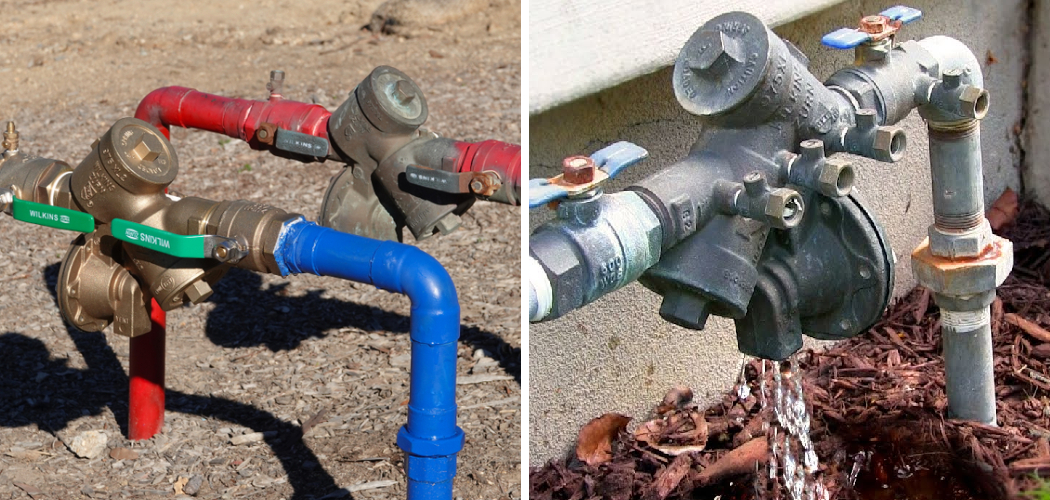Are you looking for a way to stop your backflow preventer from leaking? If so, look no further! In this blog post, we will outline everything you need to know about backflow preventers and how they work in order to help put an end to the frustrating and potentially costly leaks.
We’ll explore the basics of these important fixtures, what causes them to fail, and practical solutions that will help keep them working efficiently. We’ll also provide some expert tips on maintenance which is key for long-term performance. Read on as we take a closer look at all aspects of backflow prevention – from installation and repairs to troubleshooting and more.
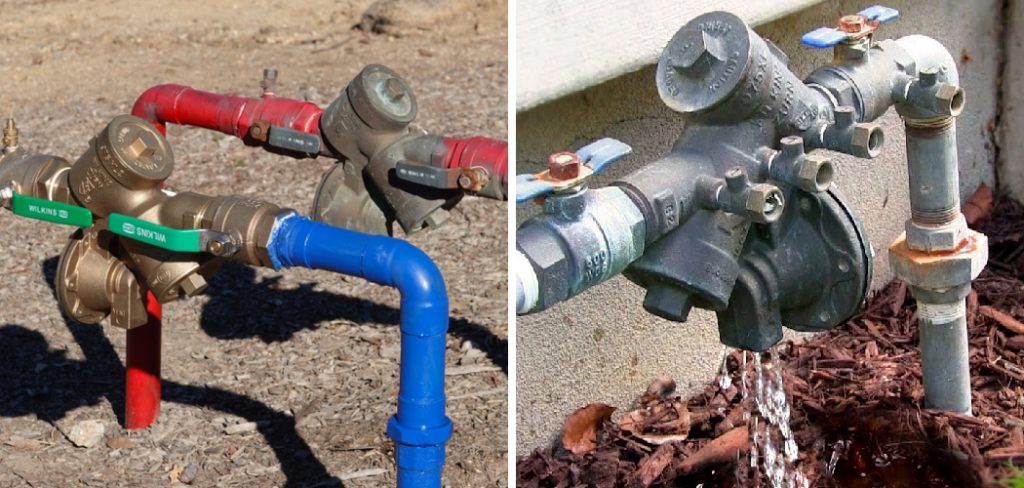
Backflow preventers are an essential part of any plumbing system, but they can be subject to leaks. If a backflow preventer is leaking, it can cause significant water damage in your home and increase the costs associated with maintaining your plumbing system.
Fortunately, you can often stop this kind of leak by performing simple maintenance and repairs on the backflow preventer. In this blog post, we’ll explain how to stop a backflow preventer from leaking so that you can keep your home safe and avoid costly repairs.
Why is It Important to Stop a Backflow Preventer From Leaking?
1. To Prevent Contamination
A leaking backflow preventer can allow contaminated water to flow back into the potable water system, which can lead to health risks for those using it. This will also cause an increase in water loss and costs.
2. To Protect Against Property Damage
A leaking backflow preventer can lead to flooding, which can cause damage to the property. This issue should be addressed quickly to avoid additional damage.
3. To Avoid Costly Repairs or Replacement
If the backflow preventer is allowed to leak for too long, it can cause severe damage to the system that may require costly repairs or replacement. Also make sure to check for any other damage that may have been caused by the leak.
10 Ways About How Can You Stop a Backflow Preventer From Leaking
1. Check and Replace Defective Parts
If you suspect that the backflow preventer has defective parts, check them first and replace them if necessary. Doing this will help ensure that the backflow preventer is working correctly and not causing any leaks.
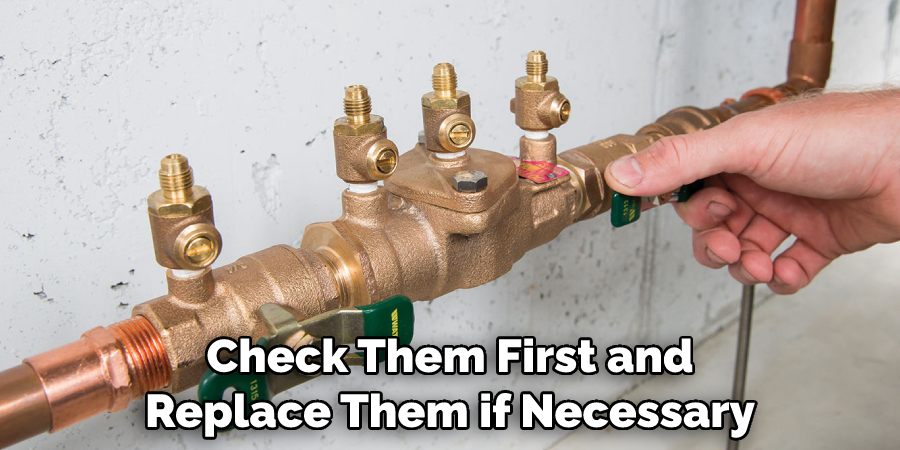
2. Make Sure the Backflow Preventer is Properly Installed
If the backflow preventer was not installed properly, it can cause serious damage to the system and lead to leaks. Ensure that it was properly installed according to manufacturer specifications or hire a licensed plumber to inspect it.
3. Check for Corrosion and Debris
Corrosion can cause backflow preventers to fail, which can then lead to leaks. Check for any signs of corrosion or debris buildup and take appropriate action as necessary.
4. Clean the Backflow Preventer Regularly
A dirty backflow preventer can cause leaks, so make sure to clean it regularly. This is especially important if there are signs of debris or corrosion. Also, keep an eye out for any signs of wear and tear or damage.
5. Replace the Gaskets and Seals
If the gaskets or seals on the backflow preventer are worn out, it can cause leaks. It is important to replace them regularly to ensure the proper functioning of the system. Make sure to use the correct gaskets and seals for your model of backflow preventer.
6. Check the Pressure and Flow Rates
The backflow preventer must be able to handle the pressure and flow rates of your system in order to avoid leaks. Make sure that the pressure and flow rate settings are correct for your system.
7. Check the Valves and Pipes
Check the valves and pipes connected to the backflow preventer for any signs of wear or damage. If you find any, replace them immediately to avoid further problems. Also, make sure they are properly connected and sealed.
8. Inspect the Pressure Relief Valve
The pressure relief valve on the backflow preventer should be inspected regularly to ensure it is working correctly. If any leaks are found, replace the valve as soon as possible. You have to make sure the valve is opened and closed properly.
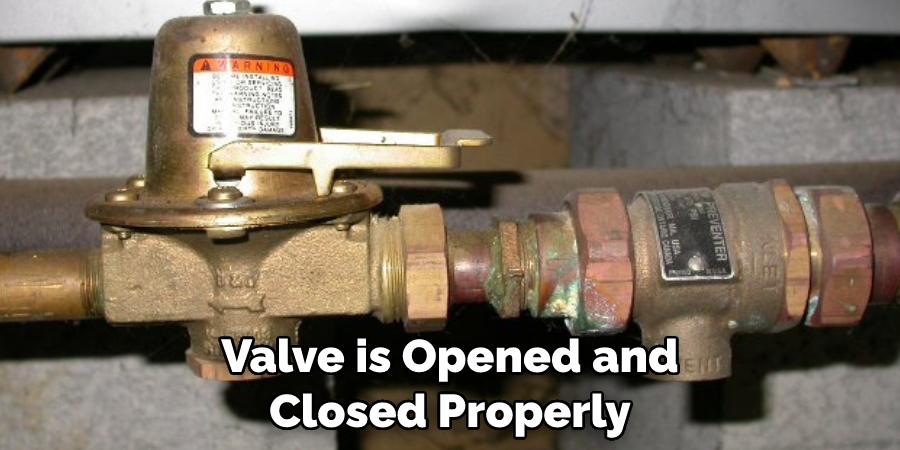
9. Check for Leaks Around the Fitting
A backflow preventer can leak if there are any gaps or cracks around the fittings. Inspect all areas around the fittings and make sure they are properly sealed to prevent leaks.
10. Test the Operation Periodically
Periodically test the operation of the backflow preventer to make sure that it is functioning correctly. This will help identify problems early on and prevent them from leading to more serious issues.
These are just a few tips about how to stop a backflow preventer from leaking. Always remember to follow the manufacturer’s instructions, consult a professional if necessary, and take all necessary safety precautions when attempting any repairs or maintenance. With proper care and maintenance, you can keep your backflow preventer in top condition for years to come. Good luck!
Frequently Asked Questions
What Precautions Should I Take to Stop a Backflow Preventer From Leaking?
Precautions you should take to prevent leaks from your backflow preventer include checking the system for damage or obstructions, repairing or replacing any damaged or worn-out parts, and regularly performing maintenance checks. It is also important that water pressure be maintained within the acceptable range for your system.
To minimize the likelihood of a backflow preventer leaking, it is important to ensure that the installation location is free from debris or other obstructions and that the preventer itself is in good working order. Additionally, special attention should be taken to inspect all connections and valves, as well as make sure that any flow restriction devices are in good working order.
Finally, it is important to regularly inspect the backflow preventer for corrosion and leaks and repair any issues as soon as possible.
What Should I Do if My Backflow Preventer Is Leaking?
If your backflow preventer is leaking, you should turn off the water supply immediately. You should then inspect the backflow preventer to identify the source of the leak.
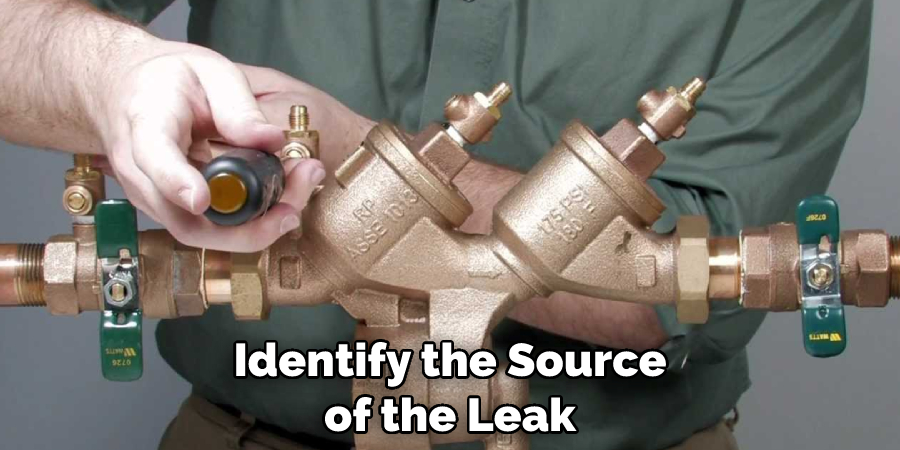
If you can’t locate the source of the leak, it may be necessary to contact a professional plumber or water treatment specialist for assistance in troubleshooting and resolving the issue. Depending on the cause of the leak, repairs or replacement parts may be needed to remedy the situation.
Can I Test My Backflow Preventer Regularly?
Yes, it is recommended that you test your backflow preventer regularly to ensure its proper functioning. Typically, the best way to perform a backflow test is through a professional plumber or water treatment specialist. During the test, they will check for proper operation and inspect all parts and connections for tightness, damage, or other signs of wear.
Additionally, they will also measure the water pressure in the system to ensure it is within the acceptable range for your particular backflow preventer. After testing has concluded, all necessary repairs should be made as soon as possible if any issues are found.
What Should I Do if I Find Damage or Obstructions in My System?
If you find any damage or obstructions in your system, it is important to take immediate action to resolve the issue. Depending on the type of damage, repairs may be necessary. If there are obstructions present, they should be removed as soon as possible to ensure that water flow is not impeded.
Additionally, it is important to regularly perform maintenance checks and inspections, as any small issue can quickly become a larger problem if left unresolved.
How Much Will Repairs Cost?
The cost of repairs will vary depending on the type and severity of the damage or obstruction. In general, it is advisable to contact a professional plumber or water treatment specialist for assistance with troubleshooting and determining the most effective course of action. They can advise you on any necessary repair work and provide an estimated cost for the repairs.
Can I Do My Own Backflow Preventer Maintenance?
Yes, it is possible to do your own backflow preventer maintenance. However, it is important to be aware of the risks associated with performing DIY maintenance, as improper handling or repair can lead to further damage and even void warranties from manufacturers.
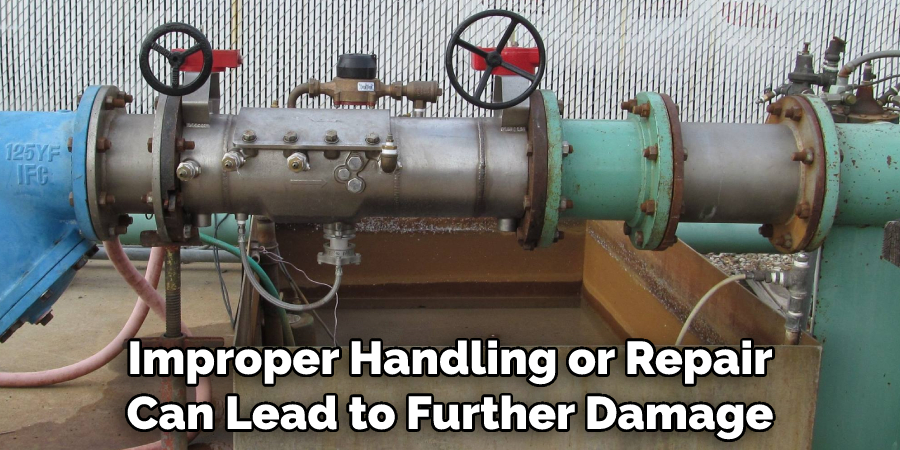
Conclusion
In conclusion, backflow preventers are an important device for any plumbing system. It is essential to take proactive steps in preventing a backflow preventer from leaking by regularly inspecting it and addressing any potential problems right away.
If your backflow preventer begins to leak, there are several methods that can be used to effectively stop it including powering off the main water supply, installing pipes of the appropriate size, reducing the pressure of the main water supply line, replacing some parts like fill and flush valves found at the top of the unit, and cleaning out sediment buildup.
Now you know how to stop a backflow preventer from leaking! Furthermore, bringing in a certified and experienced professional is always recommended when dealing with large scale issues since they will be able to quickly and properly resolve any problems you may experience with your backflow preventer.
Whether you plan on tackling this project yourself or having someone else help you out, ensuring that your backflow preventer is working efficiently will keep you from having a major plumbing disaster on your hands.

